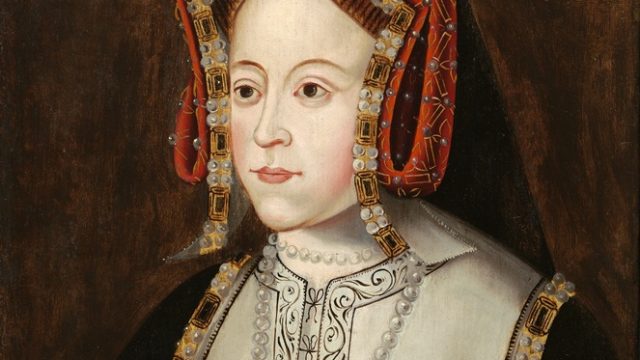About the fastest I have ever gone from “Oh, I want to see that!” to “never mind” was this week, when I discovered there was an upcoming show about Catherine of Aragon and then looked into it for a minute and found out Philippa Gregory was involved. I picture a lot of you having that same rollercoaster. The rest of you don’t know who Philippa Gregory is. Probably a few of you aren’t even sure who Catherine of Aragon was. Which is a shame, because she was quite a woman. And I speak as someone who glanced over the Google image results and think, “How mad do you think she’d be at how many of these are actually pictures of Anne Boleyn?”
Okay, so Tudor biopics are about as likely to be about Elizabeth I as about Henry VIII. And there certainly is the argument, for a lot of historical movies, that biopics tend to be made about people who prominently shaped their field or the world or what have you, and historically, that’s been an awful lot of men. However, to my mind, this makes the women whose names we know all the more interesting—imagine the uphill struggle so many of them had. Even if they were born into royalty, it took a lot more work to be as notable a monarch if you were a woman. How many of you can name five non-reigning queens of England who weren’t married to Henry VIII? Or even one queen of France who wasn’t Marie Antoinette?
But moving away from the monarchy, why hasn’t anyone done a biopic of Eleanor Roosevelt yet? I believe we’re finally getting Harriet Tubman, and that’s great, though I’ve been proposing an HBO series for years. We get a lot of movies about Van Gogh—though I admit I’d love to see one that really looked at his illness—but no Mary Cassatt. Imagine a pirate movie that talked about Ching Shih, the greatest pirate in history. Going back to royalty but not European royalty, Hatshepsut, the pharaoh who declared herself male. (Arguably, we should use different pronouns for her, but I’m pretty sure the declaration was purely political—women couldn’t be pharaoh, after all.) Yaa Asentawa, leader of the last major revolt against colonial powers in Africa?
You see what I mean. There are all kinds of fascinating women, and most of the time, when we get movies about them, they’re romances. Why are we more likely to see Elizabeth I dealing with Robin Dudley or his stepson than with Parliament? The only movie I can think of about Queen Victoria dealt as much with her relationship with her husband as her relationship with governing her country—and quite a lot with the admittedly important relationship with her mother. At least The Queen didn’t try to give us a romance for the ages involving Prince Philip. The only one of those I want to see is Disney’s Sleeping Beauty.
Okay, the danger in suggesting biopics is the sheer number of bad biopics. The main queer representation in recent biopics, for example, has been pretty lousy—The Danish Girl and Dallas Buyers Club and Bohemian Rhapsody. Fair enough. But you know, if half the biopics made were of women, that might actually mean we’d start seeing half the good biopics being made of women, too. At the very least, we’d be telling stories that aren’t told enough, and that’s its own reward.

